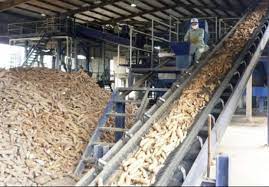In order to lessen the sector’s problematic exposure to foreign exchange, food giant Nestle’s operations in Nigeria and other African nations are increasing their sourcing of local raw materials like starch and turmeric.
Consumer goods businesses have intensified efforts to bring production and raw material sourcing closer to their consumer markets in the wake of the COVID-19 outbreak and the problems it caused in supply chains around the world.
The pressure on foreign reserves and the resulting currency instability in many African countries due to growing debt has made it increasingly difficult and expensive to buy inputs. For example, Nigeria’s central bank permitted the naira to decline by as much as 36% on the official market last week.
Cassava starch will replace imported maize starch in Nigeria, according to Nestle, which told reporters it had assisted seven local suppliers in expanding output to meet demand.
“(The) next step is to expand the localization journey across the region: Cote d’Ivoire, Cameroon, and Senegal, the largest manufacturer of packaged foods in the world said in an email statement.
Maggi stock cubes and Nesquik milkshakes are among the more than 2,000 products produced by the Swiss firm that also produces Kit Kat candy bars and Nescafe coffee.
Nestle stated that it was seeking to establish regional suppliers of the vegetables and spices used in Maggi products, such as onion powder in Senegal and Nigeria and turmeric powder in Nigeria.
“In the field of grains, we have successfully established local farmers and processors… this has been achieved through (a lot of) training in appropriate farming methods, harvesting, warehousing, and cleaning practices.
“As part of our journey and commitment to sustainability, we are now taking this next step to introduce these farmers to regenerative agriculture.”
Protecting and rebuilding soil health is a common component of regenerative agriculture, which in turn aids in capturing more carbon from the atmosphere to lower greenhouse gas emissions.
According to Nestle, it has occasionally supplied letters of intent, and technical know-how, collaborated with regional authorities to establish standards, and financial support through advance payments to suppliers to address working capital issues.
Unilever, a competitor of Nestle, said last month that managing foreign exchange costs is essentially what is motivating its own shift from Asian suppliers to African ones, even though sourcing from the continent can be more expensive than doing so in some regions of Asia.
Nestle did not address whether its location in Nigeria would protect it from fluctuations in foreign exchange rates, nor did it provide information on the economic significance of local sourcing.
The Middle East and Africa region’s sales for Nestle increased by roughly 6% last year to 5.25 billion Swiss francs ($5.9 billion), or about 6% of the whole group’s annual sales of 94.4 billion francs.




















